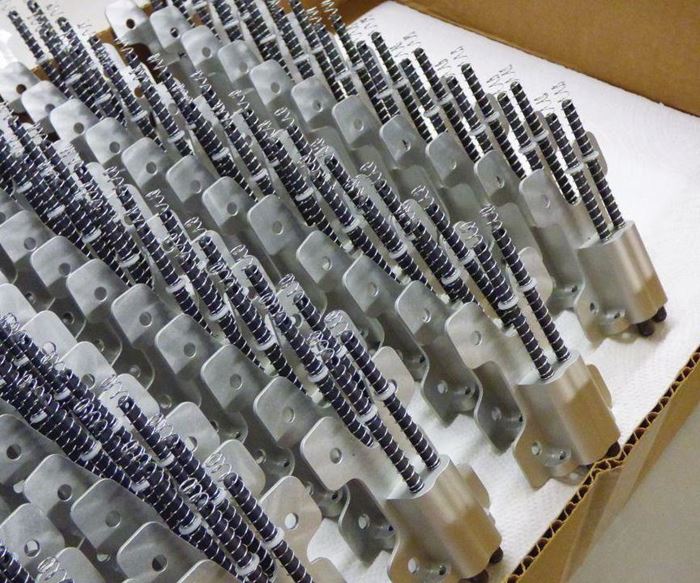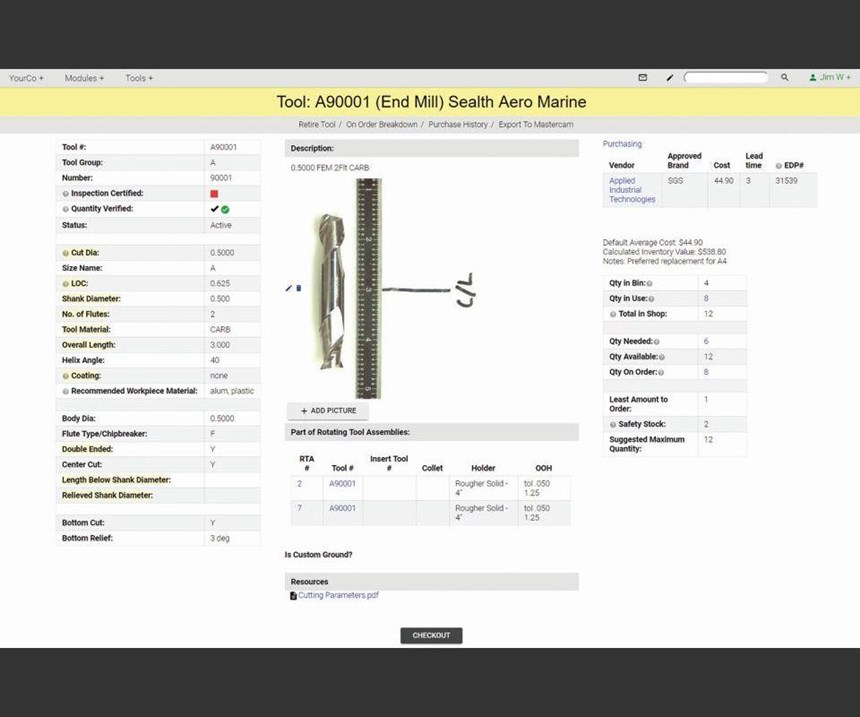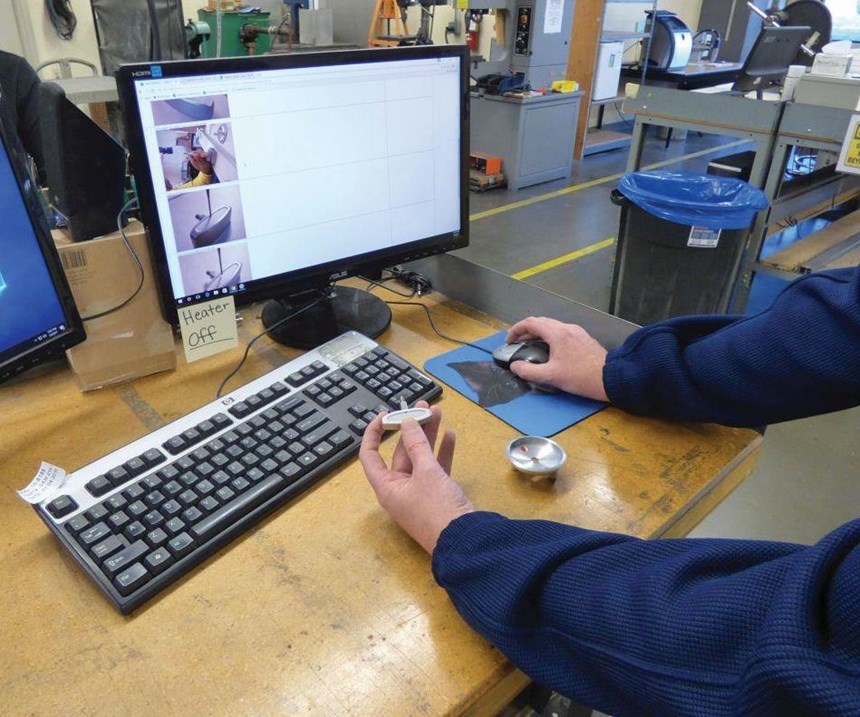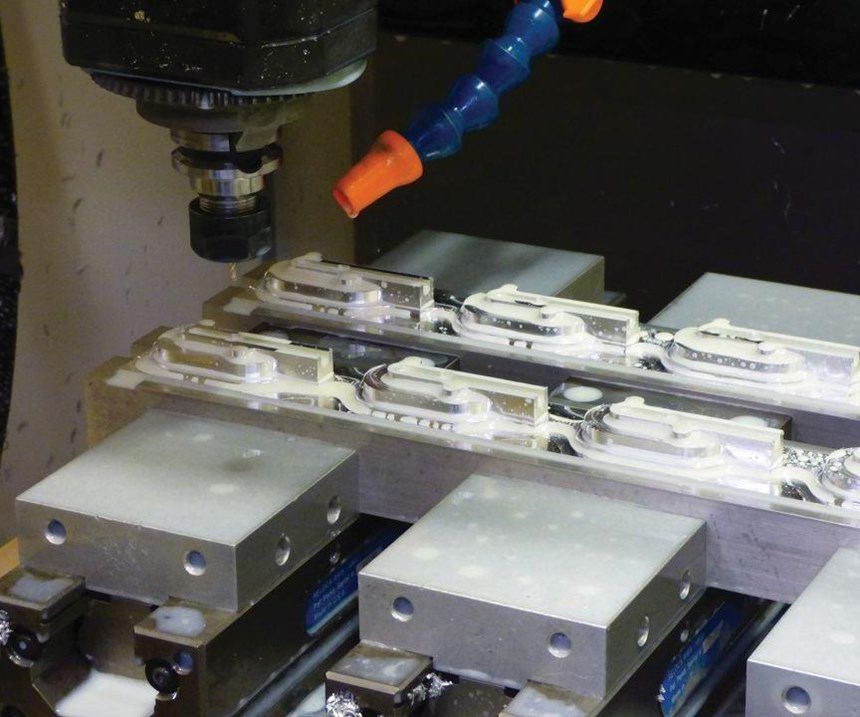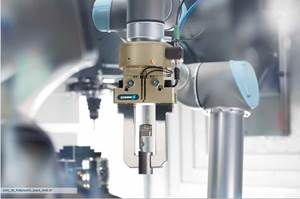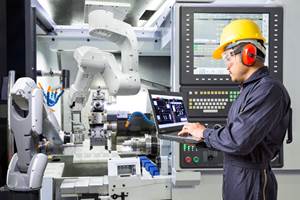Shop Management System Streamlines Aerospace Production
For Sealth Aero Marine, jobs were hard to track and production information was hard to access. ProShop, from Adion Systems made these processes easier and improved sales and on-time deliveries.
Share





An increasing number of small to medium-sized shops are now using shop management software to gain better insight into various aspects of their machining businesses. Sealth Aero Marine, a leading manufacturer of aerospace latches and hardware for various commercial and military aircraft OEMs, in one such shop.
Rich Olson, production manager, says the Mill Creek, Washington, company initially used a DOS-based enterprise resource planning (ERP) system that offered limited capabilities. Even with this ERP system, Sealth still found it challenging to keep track of the status of jobs for assemblies to ensure that the company met product delivery dates for its customers. “Despite the ERP system, the involvement of many people and daily production meetings, it seemed we were treading water in this regard,” Mr. Olson says. “As a result, sometimes we simply weren’t able to meet our product delivery dates.”
Sealth faced other manufacturing issues, as well. For example, Mr. Olson says while the company’s planning team knew that machining work had to be performed to meet production schedules, workorders were sometimes created without knowing whether jobs would be machined in house or outsourced to vendors. “In some cases, this led us to internally produce higher-than-appropriate inventory levels,” he explains. “In others, it caused us to expedite orders to vendors at a higher cost in an effort to receive parts in time. Plus, our traditional paper-based approach to resource scheduling was not visible to all departments, so over-scheduling of resources was common.”
During that time, Sealth outsourced some machining work to Pro CNC, a nearby machine shop that had developed its own web-based shop management software. Mr. Olson believed that the software offered the capabilities that Sealth’s ERP system was lacking, and eventually convinced the shop to sell that software to Sealth. Paul Van Metre, one of Pro CNC’s co-founders, says “Sealth’s results using the software were so impressive that we decided to sell our shop and go full time into the software business. We named our shop management software ProShop and started Adion Systems in Vancouver, British Columbia, in 2009.”
Mr. Van Metre, Adion Systems’ vice president of sales and marketing, says ProShop represents a new way to look at shop management software. “When Pro CNC became sizeable enough to need a shop management system, we considered all the available systems on the market, but felt none of them offered every capability we needed,” he explains. “We decided it was best to develop our own comprehensive system, one that was paperless, intuitive, web-based, and would empower and encourage all employees to use it daily to enter and obtain necessary data. We also hoped it would eliminate the problem of employees maintaining tribal knowledge.”
ProShop includes various individual software modules needed to track and manage jobs, work estimates, customers, scheduling, purchasing, costing and quality. Mr. Van Metre says it offers complete management of fixturing, cutting tools, equipment maintenance/calibration and so on, too. “It also includes a complete quality management system for ISO 9000, AS9100 and other such systems, because we believe QMS, ERP and manufacturing execution system capabilities are so intimately tied together that they should be integrated into one platform,” he explains. “ProShop can typically replace three to five other pieces of software that shops would otherwise have to use to manage their operations.”
Mr. Olson appreciates that the ProShop developers have the machining background to understand the struggles shops face and says Sealth benefits from ProShop in multiple ways. “First and foremost, it instantly revealed many examples of waste in our production processes,” he explains. “For example, it shined light on how often in the past we didn’t have a handle on the status of various jobs, which frequently caused us to expedite workorders or machine partial quantities to meet customer delivery dates. Since using ProShop, we’ve reduced late orders by 90 percent and have increased our planning throughput by 400 percent. It has also enabled us to free employees from expediting roles, further saving the company money. Plus, having better visibility of how jobs are performing on our machine tools enables us to streamline production rates and get jobs on and off machines faster. In addition, ProShop’s digital work instructions enable us to achieve fast machine setups with people of various skill levels, which helps in a tight labor market.”
Another area where ProShop specifically helped Sealth eliminate waste was by providing a clear, visual list of customers’ specific packaging requirements. “We now have the ability to ship the same product to different customers while maintaining exactly how each customer needs the product packaged,” Mr. Olson says. “We’re also able to choose different routings from the software’s part page without having to edit the existing routing if a part is going to be manufactured differently this time. ProShop allows for numerous routings for each part, so we just have to choose which routing we’d like the part to be manufactured.”
Being able to access all information provided through ProShop from one computer also enables Sealth to identify problems in real time and determine their cause, Mr. Olson says. “In some instances, we have components that require outside finishing processes, which at times requires lot charges. We can now easily see if we have similar products needing the same finishing operation as well as their status in their production process with the idea of batching those jobs together so there’s just one lot charge.”
Mr. Olson says a few of ProShop’s modules are particularly helpful to Sealth’s operation, including:
- Message module. Not only does this module sends messages as needed (related to items such as non-conformance reports, time overages, corrective action requests and so on), but Sealth can direct it to send messages linked to the proper ProShop page to whomever should receive them so that an answer is provided quickly and efficiently. This module, which is used daily by all in the company, minimizes the need for employees to seek out others there to provide the answers they need.
- In-process QC module. This module is used to check parts while they’re being made, enabling Sealth to identify quality problems faster, which helps to reduce scrap and rework, saves costs, and helps ensure on-time deliveries.
- Parts and Work Order modules. Enabling Sealth employees to see a picture of a part or the approved part drawing with the click of a mouse has been key to minimizing mistakes. Prior to having this capability, the company was at a higher risk of making an error somewhere along the manufacturing process.
Mr. Olson says personalized search queries is another helpful software feature. “ProShop enables employees to create their own search query from a module, such as parts, workorders, customer purchase orders and so on,” he says. “As a result, they can get their requested results without having to change the query. For example, one could set a query to have ProShop show all workorders needed in the next two weeks that require first-article inspection.”
As a supplier to aerospace companies, Sealth gets audited quite often, whether it’s related to its AS9100 certification or by the Federal Aviation Agency (FAA) or its customers. “Auditors commonly tell us that they’ve never seen such a complete shop management system as ProShop before,” he says. “Plus, since implementing ProShop, our annual sales have increased 125 percent, while our workforce has increased by only 15 percent. Therefore, in six years, Sealth has more than doubled its annual sales with essentially the same number of employees.
“We couldn’t have done this without ProShop. I believe we’d need approximately 30 percent more employees today to grow at the rate we have if we were still using our old ERP system. In addition, the software’s return on investment in the first year was approximately 300 percent.”
Related Content
The Future of High Feed Milling in Modern Manufacturing
Achieve higher metal removal rates and enhanced predictability with ISCAR’s advanced high-feed milling tools — optimized for today’s competitive global market.
Read MoreLean Approach to Automated Machine Tending Delivers Quicker Paths to Success
Almost any shop can automate at least some of its production, even in low-volume, high-mix applications. The key to getting started is finding the simplest solutions that fit your requirements. It helps to work with an automation partner that understands your needs.
Read MoreHow to Determine the Currently Active Work Offset Number
Determining the currently active work offset number is practical when the program zero point is changing between workpieces in a production run.
Read More6 Machine Shop Essentials to Stay Competitive
If you want to streamline production and be competitive in the industry, you will need far more than a standard three-axis CNC mill or two-axis CNC lathe and a few measuring tools.
Read MoreRead Next
Building Out a Foundation for Student Machinists
Autodesk and Haas have teamed up to produce an introductory course for students that covers the basics of CAD, CAM and CNC while providing them with a portfolio part.
Read MoreRegistration Now Open for the Precision Machining Technology Show (PMTS) 2025
The precision machining industry’s premier event returns to Cleveland, OH, April 1-3.
Read MoreSetting Up the Building Blocks for a Digital Factory
Woodward Inc. spent over a year developing an API to connect machines to its digital factory. Caron Engineering’s MiConnect has cut most of this process while also granting the shop greater access to machine information.
Read More

